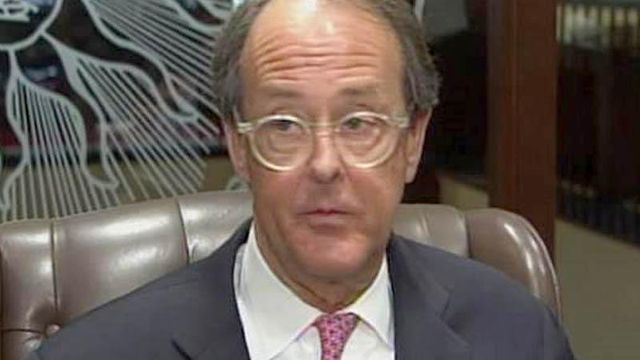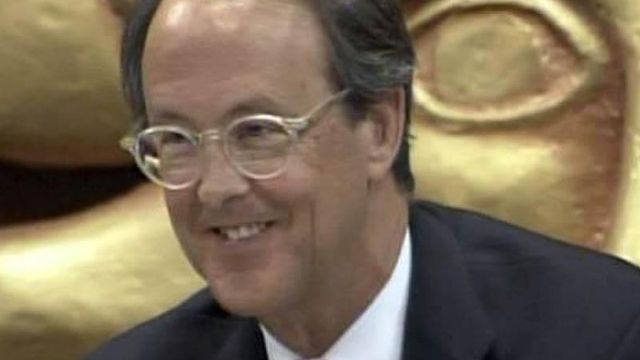Bowles to retire as UNC president
UNC President Erskine Bowles announced Friday morning that he will retire as head of the 17-campus system by the end of this year, or as soon as a successor can be named.
Posted — Updated"I know in my head and in my heart that this is the right decision at the right time," Bowles told the UNC Board of Governors during its monthly meeting.
Bowles was named UNC president in January 2006, and he said Friday that he had always planned to stay in the position for no more than five years.
"I'm a driver. I'm a pusher. I'm a tough guy to work for," he said. "I set really high standards. I have really high goals and objectives, and I push to get there and I wear people out."
His colleagues conceded he's tough but said they would have liked to work with him for a few more years.
"He represents the system well to the legislature. He's a very action-oriented, very analytical president," Fayetteville State University Chancellor James Anderson said.
Bowles called the university system "arguably the best public university in America" and said there should be no shortage of well-qualified candidates to take the reins.
"I feel good about where we are," he said.
"He came along at the perfect time, I think, with the skill set and talents that the UNC system needed at this point in history," Board of Governors Chairwoman Hannah Gage said. "He is as close to irreplaceable as any president will be."
Lawmakers wanted each campus to raise tuition by the lesser of 8 percent or $200, with the extra money going back to the state's General Fund. The board followed Bowles' lead in insisting that the tuition revenue return to the schools to pay for financial aid and other campus needs.
The budget deficit also forced the UNC system to cut hundreds of jobs, and Bowles pushed for campuses to revamp their management structures after an independent consultant noted that administrative expenses were growing faster than academic spending at UNC-Chapel Hill.
"I think we've weathered the financial storm better than anybody else I know of in the country," Bowles said.
House Speaker Joe Hackney said Bowles always was upfront with lawmakers.
"He told us exactly what he wanted. He would come into my office, and he'd say, 'These are my top three priorities,'" said Hackney, D-Orange. "He focused on efficiency. He focused on access."
Former UNC President William Friday said Bowles brought increased efficiencies to the university system. He cited efforts to tighten up the system's finances and undertaking the UNC Tomorrow initiative as examples of Bowles' legacy.
UNC Tomorrow involved statewide meetings to determine what North Carolina residents expect from the state university system.
"He brought very seasoned experience to the job," Friday said. "It's a splendid example of a native son coming home to his native land to help the people of North Carolina."
Bowles also reinvigorated the position through his enthusiasm and pride in North Carolina, Friday said.
"President Bowles not only redefined that but locked arms with the public again, saying, 'Let's go and build a better state,' and that's what he set in motion," he said.
Bowles' tenure was also marked by scandal at several campuses.
He replaced the chancellors at both Fayetteville State and North Carolina A&T State University because of financial mismanagement, and last year, he called for the resignation of North Carolina State University Chancellor James Oblinger amid a federal investigation into the hiring and promotion of Mary Easley, the wife of former Gov. Mike Easley.
Politics not in Bowles' future
Before coming to UNC, Bowles worked as an investment banker in Charlotte, and he served as head of the Small Business Administration in Washington, D.C., and as chief of staff to former President Bill Clinton. He also ran unsuccessfully for the U.S. Senate, losing to Elizabeth Dole in 2002 and to Sen. Richard Burr in 2004.
"It’s a loss to the system and a loss to the state, but he deserves it," Anderson said of Bowles' retirement. "Erskine has done a lot in his career, his professional career. You look back, and he’s had monumental accomplishments.”
Bowles said he's exploring several options for his future but he emphatically ruled out another run for public office, saying he has no interest in partisan politics.
"Serving the people of North Carolina as president of the university – this university that I love to my core – will always be the greatest privilege of my professional career," he said.
"What I was blessed with was with the opportunity to take something great and try to make it a little better," he said. "I love this job. I love this university."
No timetable was set Friday for the search for his successor.
• Credits
Copyright 2024 by Capitol Broadcasting Company. All rights reserved. This material may not be published, broadcast, rewritten or redistributed.






